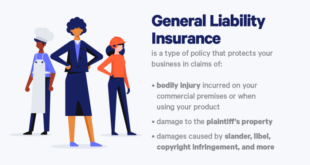Micro business insurance emerges as a crucial lifeline for small businesses, safeguarding their financial well-being and paving the way for sustained growth. Join us as we delve into the intricacies of this insurance, exploring its comprehensive coverage, benefits, and strategies for selecting the perfect policy for your enterprise.
From financial protection against unexpected events to legal compliance and operational peace of mind, micro business insurance empowers entrepreneurs to navigate challenges with confidence. Discover how this essential tool can transform your business and set you on the path to success.
Micro Business Insurance Coverage
Micro businesses, like any other business, face a multitude of risks that can potentially jeopardize their operations and financial stability. Micro business insurance is a crucial tool that can provide protection against these risks, ensuring the continuity and growth of the business.
There are various types of insurance coverage available for micro businesses, each designed to address specific risks. Understanding the different types of coverage and their importance is essential for micro businesses to make informed decisions about their insurance needs.
Property Insurance
Property insurance protects the physical assets of a micro business, such as its building, inventory, and equipment. It covers losses or damages caused by events like fire, theft, or natural disasters. Property insurance is essential for micro businesses as it ensures the financial recovery of the business in the event of a covered loss.
Liability Insurance
Liability insurance protects micro businesses from legal claims made by third parties for bodily injury or property damage caused by the business or its employees. This type of insurance is crucial as it safeguards the business’s financial assets and reputation in the event of a lawsuit.
Business Interruption Insurance
Business interruption insurance provides coverage for lost income and expenses incurred due to an interruption in business operations. This type of insurance is particularly important for micro businesses that rely heavily on their day-to-day operations for revenue.
Factors Affecting the Cost of Micro Business Insurance
The cost of micro business insurance varies depending on several factors, including:
- Type of coverage:Different types of coverage have different premiums, with some being more expensive than others.
- Business size:Larger micro businesses with more employees and assets will generally have higher insurance premiums.
- Industry:Certain industries, such as construction or manufacturing, pose higher risks and therefore have higher insurance premiums.
- Location:Businesses located in areas with higher crime rates or natural disaster risks will typically have higher insurance premiums.
- Claims history:Businesses with a history of claims will generally have higher insurance premiums.
Benefits of Micro Business Insurance

Micro business insurance provides numerous benefits that can help businesses thrive and mitigate risks. These benefits encompass financial, legal, and operational advantages that are essential for the growth and stability of micro businesses.
Financial Benefits
Micro business insurance acts as a financial safety net, protecting businesses against unexpected events that could lead to significant financial losses. By covering expenses such as property damage, legal fees, and lost income, insurance helps businesses stay afloat during challenging times.
Without insurance, micro businesses would be vulnerable to financial ruin, as they often lack the resources to absorb substantial financial setbacks.
Legal Benefits
Insurance also plays a crucial role in ensuring legal compliance and protecting businesses against lawsuits. Many industries require businesses to carry specific types of insurance, and failure to do so can result in fines or legal penalties. Additionally, insurance provides coverage for legal expenses incurred in defending against lawsuits, which can be a significant financial burden for small businesses.
Operational Benefits
Beyond financial and legal protection, micro business insurance offers operational benefits that enhance business operations. By providing peace of mind and reducing uncertainty, insurance allows businesses to focus on growth and innovation without being constantly worried about potential risks. Insurance also facilitates access to financing, as lenders often require businesses to carry adequate insurance coverage before approving loans.
How to Choose the Right Micro Business Insurance

Selecting the appropriate micro business insurance policy is crucial to safeguard your business against potential risks. Here’s a comprehensive guide to help you assess your insurance needs and make an informed decision:
Assessing Your Business’s Insurance Needs
- Identify potential risks:Determine the specific risks your business faces, such as property damage, liability claims, or employee injuries.
- Evaluate financial exposure:Estimate the potential financial losses associated with each risk to determine the level of coverage you need.
- Consider industry-specific requirements:Some industries have specific insurance regulations or standards that you must comply with.
Comparing Insurance Policies
- Review coverage details:Carefully compare the coverage limits, exclusions, and deductibles of different policies to ensure they align with your needs.
- Consider premium costs:Compare the premiums charged by different insurance companies to find the best value for your budget.
li> Read reviews and testimonials:Check online reviews and seek recommendations from other business owners to gather insights into the reputation and reliability of insurance providers.
Working with an Insurance Agent or Broker, Micro business insurance
Collaborating with an experienced insurance agent or broker can provide valuable guidance and expertise. They can:
- Analyze your business’s needs:Help you identify and prioritize the risks your business faces.
- Recommend suitable policies:Provide tailored insurance solutions that meet your specific requirements.
- Negotiate favorable terms:Use their industry knowledge to negotiate competitive premiums and coverage terms.
Claims Process for Micro Business Insurance
In the unfortunate event of a covered loss, filing a claim under a micro business insurance policy is essential to receive financial compensation. The claims process typically involves several steps:
Filing a Claim
To initiate the claims process, you should promptly notify your insurance provider about the incident. You can do this by phone, email, or through an online portal. Provide a clear description of the loss, including the date, time, and circumstances surrounding the event.
Documentation and Information
To support your claim, you will need to provide documentation and information to the insurance company. This may include:
- Policy number
- Proof of loss, such as invoices, receipts, or estimates
- Photographs or videos of the damage
- Witness statements
- Police reports (if applicable)
Investigation and Settlement
Once the claim is filed, the insurance company will assign an adjuster to investigate the loss. The adjuster will review the documentation, interview witnesses, and assess the damage. Based on their findings, the adjuster will determine the amount of the settlement.
The claims settlement process can take varying amounts of time, depending on the complexity of the claim. However, most insurance companies aim to settle claims as quickly as possible.
Emerging Trends in Micro Business Insurance

The micro business insurance landscape is constantly evolving, driven by technological advancements and changing business needs. Emerging trends are shaping the industry, providing new opportunities and challenges for both insurers and policyholders.
One significant trend is the increasing use of technology in micro business insurance. Insurers are leveraging artificial intelligence (AI), machine learning, and data analytics to streamline underwriting processes, improve risk assessment, and offer personalized coverage options. This technological advancement enables faster and more accurate underwriting, reducing costs and improving the overall customer experience.
Product Innovation
The emergence of new technologies has also led to the development of innovative micro business insurance products. Insurers are introducing policies tailored to the specific needs of micro businesses, such as cyber liability insurance to protect against data breaches and business interruption insurance to cover losses resulting from unexpected events.
Data-Driven Risk Management
Data analytics is playing a crucial role in micro business insurance. Insurers are using data to identify and mitigate risks, enabling them to offer more targeted and cost-effective coverage. By analyzing claims history, industry trends, and economic indicators, insurers can better understand the unique risks faced by micro businesses and develop policies that provide optimal protection.
Digital Distribution Channels
The rise of digital distribution channels is making micro business insurance more accessible and convenient. Insurers are partnering with online marketplaces and brokers to offer policies online, allowing micro businesses to easily compare quotes and purchase coverage from the comfort of their own devices.
These emerging trends are transforming the micro business insurance landscape, providing new opportunities for insurers to innovate and offer customized solutions. As the industry continues to evolve, micro businesses can expect to benefit from improved coverage options, reduced costs, and enhanced risk management strategies.
Ultimate Conclusion: Micro Business Insurance
In a rapidly evolving business landscape, micro business insurance has emerged as an indispensable ally for entrepreneurs. By understanding the different types of coverage available, assessing your business’s unique needs, and partnering with a reputable insurance provider, you can tailor a policy that meets your specific requirements.
Embrace the power of micro business insurance and unlock a world of possibilities for your enterprise. Safeguard your financial future, mitigate risks, and propel your business towards sustained growth.
Essential Questionnaire
What types of coverage are typically included in micro business insurance?
Micro business insurance policies typically offer a range of coverage options, including general liability, property insurance, business interruption insurance, and professional liability insurance.
How much does micro business insurance cost?
The cost of micro business insurance varies depending on factors such as the type of coverage, the size of the business, and the location of the business. However, it is generally affordable and tailored to meet the budget of small businesses.
Do I need micro business insurance if I work from home?
Yes, micro business insurance is recommended even if you work from home. It can protect you from liability claims, property damage, and other risks associated with running a business from your home.
 Nenroll Nenroll News
Nenroll Nenroll News





